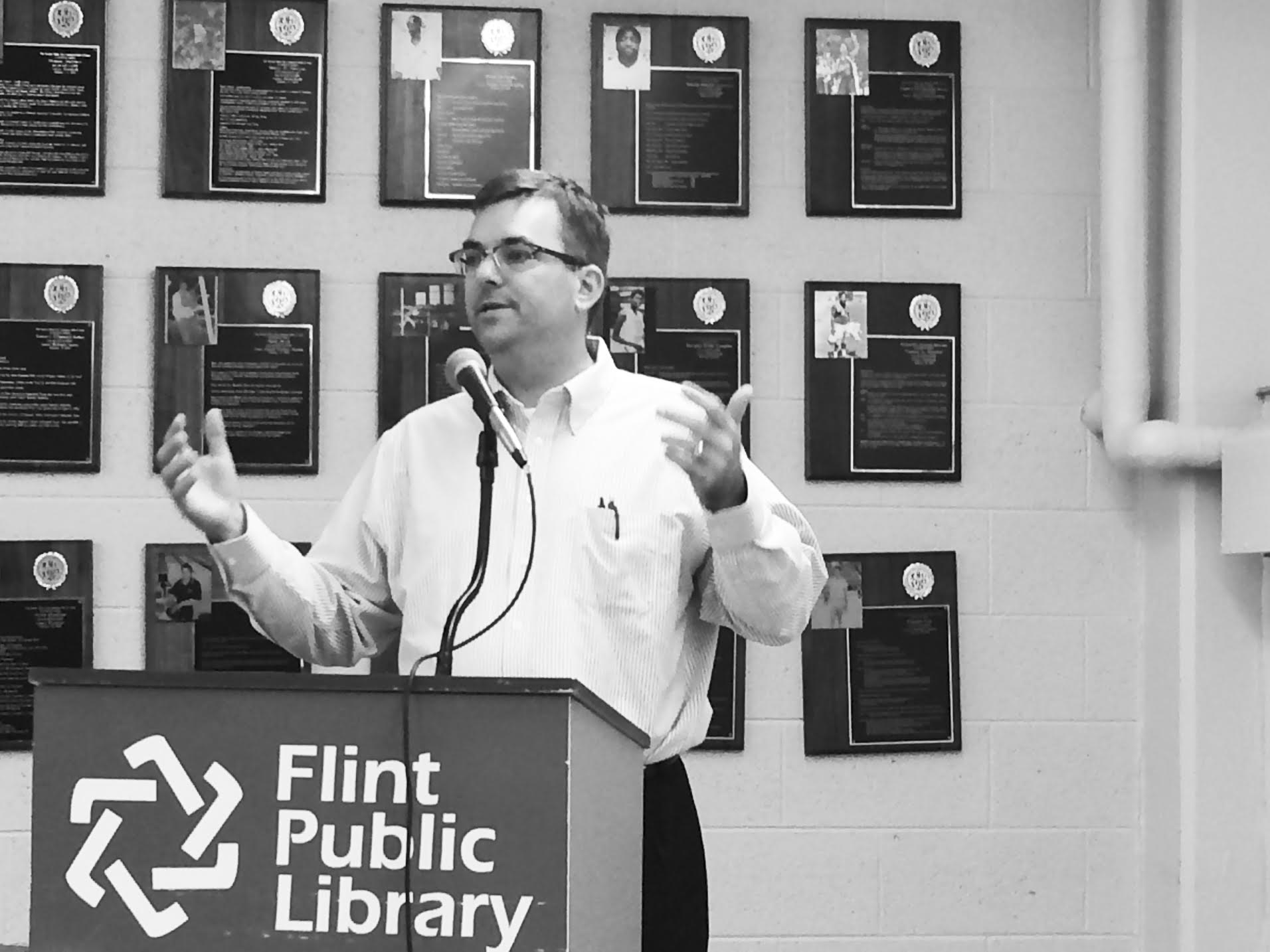By Jan Worth-Nelson
A four-session opportunity to read, discuss and absorb Demolition Means Progress: Flint and the Fate of the American Metropolis by Andrew Highsmith, a book described by many readers as one of the most penetrating, well-researched and troubling about Flint, kicks off at 10 a.m. Saturday, Sept. 29 at Totem Books.
Harold C. Ford, a retired educator, activist and writer for East Village Magazine, will lead the discussions along with others brought in along the way. The series is sponsored by the Unitarian Universalist Church of Flint’s Sharp 2020 Committee.
 The first session will cover Chapters 1-2, up to p. 77.
The first session will cover Chapters 1-2, up to p. 77.
The other three sessions, all also meeting from 10 to 11:30 a.m. at Totem, 620 W. Court St., are as follows:
Oct. 13, Chapters 3-5, to p. 144.
Oct. 27, Chapters 6-8, to p. 221.
Nov. 10, Chapters 9-10 and Epilogue, to p. 285.
Ford said a “friendly study guide” would be provided to help provide focus and facilitate discussion. The book can be acquired at Totem, local libraries and online. The book is priced at $30 paperback; $45 hardcover; $24 Kindle. Ford said if affordability is a problem to contact him at 810-233-8888.
In his January, 2016 review of the book, EVM writer Robert Thomas called it “a fascinating Flint Decoder Ring,” adding, “Highsmith’s ‘local case study of the political economy of racial and economic inequality in modern America’ is also a notable historic document for our times.”
“I entered the book gingerly, fearing arid drones of science and scholarship, but I was quickly seduced by the measured, engaging narrative voice, synthesizing historical fact upon fact in manageable doses to reveal a kaleidoscope of fresh, shape-sifting perspectives to which the book’s subtitle — Flint and the Fate of the American Metropolis — alludes,” Thomas wrote.

Author Andrew Highsmith addressing a Flint Public Library audience in 2015. (Photo by Jan Worth-Nelson)
Parts of the story are sobering and painful, as the history of the city’s racial, housing and economic inequalities, enabled by monied interests, reflected and paralleled similar injustices in the country, Thomas said.
According to Highsmith, for example, “By the close of the 1930s, the widespread use of restrictive covenants by local residents had helped make Flint the third most segregated city in the nation, surprised only by Miami Florida and Norfolk, Virginia.”
In a 2015 review, an In These Times magazine reviewer wrote of the book,
“Powerful. . . . Demolition Means Progress is a story of how people—in this case, the founding fathers of Flint’s white suburbs—used municipal government as a weapon, drawing borders of citizenship to exclude people of color and the poor from the region’s wealth. That’s a story that played out in metropolitan areas across America in the decades after World War II. But it was particularly devastating in Flint.”
Highsmith’s book was finished before the water crisis but was published in 2015 just as the full dimensions of the debacle were emerging. Partly because of that timing, Highsmith said in a 2016 interview with EVM in California, where he is now professor at the University of California – Irvine, the book sold out and went into a second printing, unheard of for what began as a Ph.D. dissertation. No one, he said back then, was more astonished than he.
In that interview, Highsmith confessed there was a tinge of discomfort for him in the way the Flint crisis benefitted his book’s fortune and his professional cachet.
“I always understood that if crises were going to happen in Flint, the stage was set for them,” he said, asserting in his book and in numerous interviews in those intense months, that Flint’s woes are the result “not just of the immediate water debacle but of decades of infrastructure neglect and policy and leadership failures.”
Ford said the purpose of the reading series is “to better understand the history of our hometown; to promote literacy; to promote community discussion and, perhaps, action(s).”
For more information, Harold C. Ford can be reached at hcford1185@gmail.com.
EVM Editor Jan Worth-Nelson can be reached at janworth1118@gmail.com.


You must be logged in to post a comment.